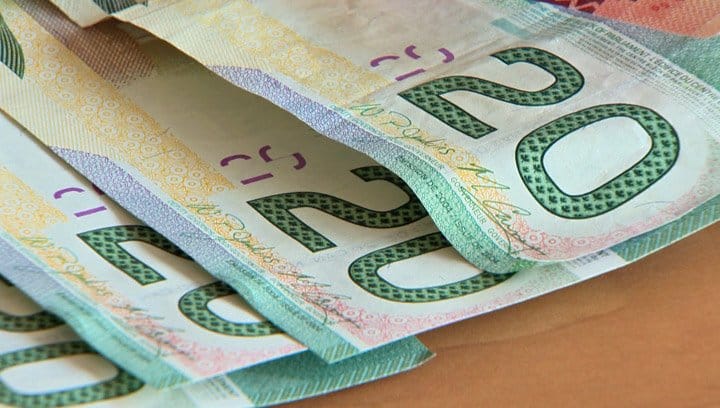Investors are duping U.S. government bonds, a topic that has been making headlines for a while, but there is a bigger issue that often gets attention. Owners typically enter Treasurys after a whiff of economic conflict, but now they are selling them because not even the trap of higher interest rates on the bonds can compel them to do so. Experts are concerned about the bizarre development, which makes great banks, money, and traders feel less confident in America as a safe haven for their money. The concern is that the United States will lose its status as a safe haven, according to Penn Mutual Asset Management’s George Cipolloni, a bank manager. Our bond market is the largest and most secure in the world, but when volatility is added, negative things can happen.
Trump’s tax U-turn raises questions about inside trading, which could be bad for consumers who need a loan as well as for President Donald Trump, who had hoped that his earlier this week’s price pause may regain self-confidence in the markets. The offer on the 10-year Treasury was 4.01 percent a week ago. The offer reached 4.58 percent on Friday before falling up to around 4.50 percent. That represents a significant change for the relationship industry, which measures movements by the tenths of a percentage point. A major struck to regular Americans might be one of the potential knockoff effects, which include higher interest rates on mortgages, auto loans, and other debts. According to Brian Rehling, mind of the fixed income technique at Wells Fargo Investment Institute, “you’ll see your borrowing rates go up as yields move higher, too.” Every business uses these financing sources, they claim. No one can say for certain what combination of factors is responsible for the developing connection bust or how much it will last, but it’s rattling Wall Street however. If they get more costly, they’ll have to pass those costs along to customers or reduce costs by cutting jobs. 1: 45
Trump’s tax flip-flop overshadows promises made during the national vote In this way, they act as shock absorbers for 401(k )s and other assets in property market outbursts, making a small profit from the loss. The latest indicator of friendship yield increases was Friday’s worse-than-expected checking on consumer sentiment, including expectations for much higher inflation, according to Jack McIntyre, profile manager for Brandywine Global. However, the strange bond yield increase this week also reflects deeper worries, such as how Trump’s tariff threats and uneven policy choices have made America appear angry and unstable. These worries are not likely to fade even once the tariff war is over. Perhaps a much fuller surrender on trade does not work when the issue is a broader loss of confidence in the United States, according to Sarah Bianchi and other Evercore ISI analysts, to lower provides. We’re not certain whether any of the tools in Trump’s kit will stop the bleeding completely.
Trump acknowledged that the relationship market contributed to his decision to halt some tariffs on Wednesday, saying that investors “were getting a little queasy.” White House warns Beijing against more punitive taxes, says it didn’t be” good for China.”
New U.S. regulations for foreigners to enter effect on Friday after a petition was rejected.
Carney says Trump’s business combat raises” the stakes,” but she doesn’t want to.
It doesn’t come as a surprise if it were the bond market, never stocks, that caused him to change direction. The connection industry’s response to her finances and tax policies was what led to the resignation of British Prime Minister Liz Truss in 2022, whose 49 times made her the country’s shortest-serving prime minister. Due to how powerful the bond market is, James Carville, an assistant to previous U.S. President Bill Clinton, famously declared that he wanted to be reincarnated as the relationship market. Investors are so entrenched in the American debt that it even occurs when you’d least expect it. During the 2009 Financial Crisis, for example, people poured money into U.S. Treasury securities despite the fact that the country was the source of the issue, particularly its cover business. However, to Wall Street experts, it made sense: U.S. Treasurys are liquid, secure, and you can buy and sell them without a fuss, so businesses and traders had naturally assemble to rush out the storm. based on U. During that issue, which had a benefit beyond bolstering specific financial portfolios, S bonds fell immediately. Additionally, it reduced borrowing prices, which helped businesses and consumers recover. This time, the organic remedy is not working. Apart from immediate jitters about the U.S., several other factors could be what are to blame for the relationship sell-off. Some experts believe that China, a sizable owner of U.S. government securities, is dumping them in retaliation. However, that seems doubtful because it would also be detrimental to the nation. Selling Treasurys, or essentially trading U.S. money for Chinese yuan, may cause China’s currency to develop and its exports to become more expensive. 2: 30
Business Matters: Smaller American food producers could be in trouble if they were forced to pay taxes. That implies that they need to raise money and that their loans are asking for payment. They are selling Treasurys, according to Mike Arone, chief investment strategist at State Street Global Advisors, and that is a part of the process. Rehling of Wells Fargo said he is concerned about a decline in confidence in the United States, but that it’s too early to say for certain, and that the sell-off does stop soon, at least. Where do you go if you no longer have a spot to park your dollars? he argued. Is there another relationship that is more liquid out it? I don’t believe so.
